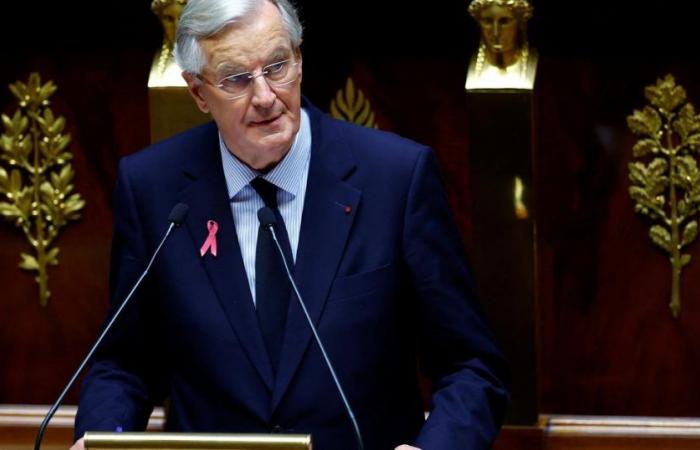In his general policy speech, the Prime Minister confirmed his intention to “request participation in the collective recovery” of companies which “make significant profits”, without further details.
Large companies will pay well. During his general policy speech, delivered this Tuesday, October 1 to deputies, Prime Minister Michel Barnier estimated that the country’s budgetary situation requires “a targeted effort, limited in time” of certain large groups. “This sharing of effort will lead us to ask for participation in collective recovery, from large and very large companies which make significant profits”he added, without giving further details on the companies concerned.
Economic circles were prepared for this. In an article published on September 29, The World revealed that a “exceptional contribution to the profits of large companies” was envisaged by the new government. According to the document consulted by the daily, the companies in question would be subject, in addition to corporate tax, reduced in recent years to 25% of taxable profits, to a surcharge of 8.5 percentage points. But only groups with a turnover greater than or equal to 1 billion euros and liable for corporate tax would be targeted by this «contribution» limited in time.
A precedent in 2017
If Bercy were to opt for such “surcharge”large and very large companies would thus find themselves taxed at 33.5%, i.e. a rate equivalent to that which prevailed between 1993 and 2017, before the tax cuts decided by Emmanuel Macron. This is not the first time that the bigwigs of the French economy have faced a temporary corporate tax surcharge. Over the past fifteen years, several governments have been forced to do the same to restore public accounts. In 2011, François Fillon, then prime minister under Nicolas Sarkozy, introduced a temporary two-year tax, finally extended in 2013 by Jean-Marc Ayrault. In 2017, the government of Édouard Philippe decided, in turn, to surcharge large groups. The Macronist government had opted for a scale differentiated according to turnover: companies with a turnover of more than 1 billion euros were subject to a surcharge of 15% on their profits, 30% for structures exceeding the 3 billion turnover. That is to say IS rates reaching 38.3%, or 43.3% respectively.
In the absence of additional information, it is impossible to establish with certainty the list of companies which could be affected by the surcharge envisaged by the Barnier government. In 2017, the tax overhaul decided by Emmanuel Macron affected around 300 large companies. French companies whose market capitalization exceeds one billion euros, identified by the Minister of the Economy, should undoubtedly fall under the scope of this tax measure. These are the behemoths of the French economy, which have largely exceeded one billion euros in turnover in 2023, whether they belong to the energy sector (TotalEnergies, $237 billion), luxury (LVMH, 86 billion euros, L’Oréal 41.18 billion euros), finance (BNP, 45.87 billion euros), industry (Air Liquide, 27 billion euros, Alstom, 17 billion euros) or even mass distribution (Carrefour, 94 billion euros).






